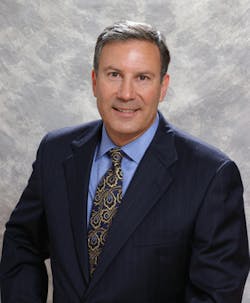Steve Handschuh is the president and COO of the Automotive Aftermarket Suppliers Association. The AASA will manage the ownership that the Motor Equipment Manufacturers Association (MEMA) recently took in OptiCat, a supplier-owned parts catalog data aggregator. OptiCat is similar in structure to TecDoc, the European parts data aggregator, and another shareholder in OptiCat.
What are the benefits of a service like OptiCat for suppliers?OptiCat’s supplier-centric, "Do It Once" (DIO) model provides several benefits for suppliers. These include access to comprehensive global vehicle tables through TecDoc, improved data intellectual property (IP) protection through supplier-controlled processes, and reduced costs by providing a single place to deliver data and other automated processes that will include validation and discrepancy reporting.
What do you see as the biggest obstacle to technology adoption in the aftermarket?
The automotive aftermarket is behind other industries in technology adoption, but it is making significant progress. Internet applications are simplifying the communication of information and utilization of business software.
While there are several reasons for slow adoption of standards—too complex for many companies, lack of demonstrated value for allocating resources, perceived competitive advantage—it seems there are no large players to drive the industry to standardization. Neither single companies, suppliers nor customers have succeeded. With that said, according to the MEMA Technology Council’s Customer E-commerce Matrix and survey results reported during the recent NCMA Annual Conference, the use of the ACES format is increasing.
What are some of the most exciting technology developments that may affect the aftermarket?
Web Services is a category of Internet/Web applications that enables information to be communicated between companies, regardless of software platforms. This will affect data sharing between trading partners, help create more robust supplier extranets and increase transparency across the industry. “Software as a Service” probably will grow in use as companies outsource various applications they do not want to manage.
What could be done to encourage more data standards adoption in the industry?
Actually, widespread utilization of OptiCat for data dissemination would drive the industry to ACES and PIES compliance. OptiCat management has stated publicly that it much prefers to accept and distribute data in industry standard formats. Another way to push adoption is to hold an industry forum between supplier and channel partner executives and not let them out until they agree to common ways to conduct e-commerce.


